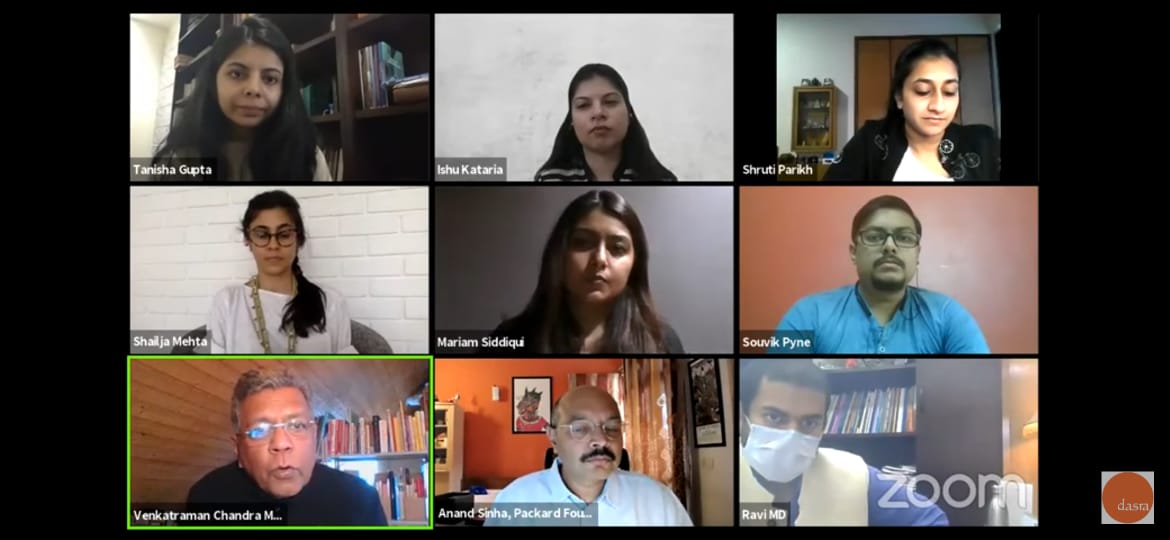Dasra’s 10-19 Community of Practice and RTI International India join efforts to share learnings around peer education in India through an immersive webinar
New Delhi: With its aim of sharing evidence from research on the effectiveness of peer education in addressing Sexual Reproductive Health (SRH) issues among adolescents and discussing its implications, the Dasra – 10to19 Community of Practice, RTI International and a few other partners organized a webinar, on November 11, 2020 – Titled, ‘How Peer Education Can Impact Sexual & Reproductive Health for India’s Youth.’ the webinar facilitated a discussion between various stakeholders – government, funders, non-profits, academicians and young people involved in peer education.
“Peer-Education is a thought provoking and empowering exercise. It has the potential of bringing about a systematic change in the space of issues pertaining to Sexual and Reproductive Health Rights among others. The model nurturers young minds and aids in building and sustaining the adolescent capacity. The success of the Peer Education Program will ensure stronger, independent and self-reliant citizens with a sense of justice and equality.” says Shri Ravi Shankar Shukla, Mission Director of National Health Mission – Department of Health & Family Welfare, Government of Jharkhand, putting forth a very solution-oriented argument
The meeting noted that the world has witnessed a rapid implementation of peer education, primarily for issues around SRH. The Government of India also has included peer education as part of its overall strategy to improve the health and wellbeing on adolescents and young people in India, and to give them a central role in this effort. The discussion touched upon various aspects of the peer education model. The researchers presented evidence of its effectiveness in some initiatives but not in others. They also described limitations with the way it was being implemented at scale based on studies in five states. Meeting participants expressed the pressing need for all stakeholders – government, civil society organizations and corporates to come together to listen to the views and preferences, wants and needs of adolescents, and to create a strong ecosystem for peer education to be implemented effectively. Participants agreed that it was important to build knowledge, attitudes and skills and to empower adolescents and young people to make and act on their decisions. They noted that adult educators have a role to play in this just as peer educators do.
Dr. Venkatraman Chandra-Mouli, Adolescent Sexual and Reproductive Health Expert at World Health Organization’s Department of Sexual and Reproductive Health and Research, shares, “We are absolutely committed to the well-being of our adolescents. They face many opportunities as well as risk in the course of their transition to adulthood. Hence it extremely important to not just educate them but also bring to them onto a position where they can share their needs/demands and hold the system accountable for fulfilling those needs/demands. Well-designed and well-executed peer-education could contribute to this, as part of actions.”
Through its various policies and programmes, the Government of India (GOI) is committed to improving the health of adolescents. The webinar was a forum for different stakeholders to discuss one specific intervention supported by the GOI. Evidence and experience were reviewed and a roadmap agreed upon to strengthen peer education for adolescents and young people in India. The solution-oriented, multi-perspective discussions held today will go a long way in bringing about programmatic implications and policy reforms.
Tanisha from Dasra, says “Peer Education Program is a very effective way to normalize conversations about Sexual and Reproductive Health. In my opinion, analytical rigor is a very important characteristic of a Peer Educator. It helps the educator effectively analyze and discern problems of their contemporaries. Course correction in the Peer Education Models, training the Peer Educators with a renewed pedagogy are some refreshing policy reforms which we, as a civil society organization, are eager to witness”

